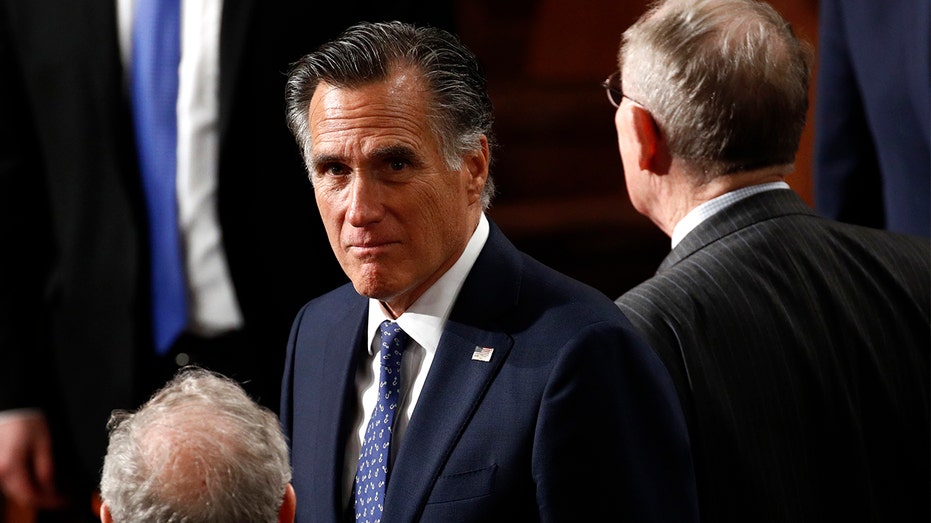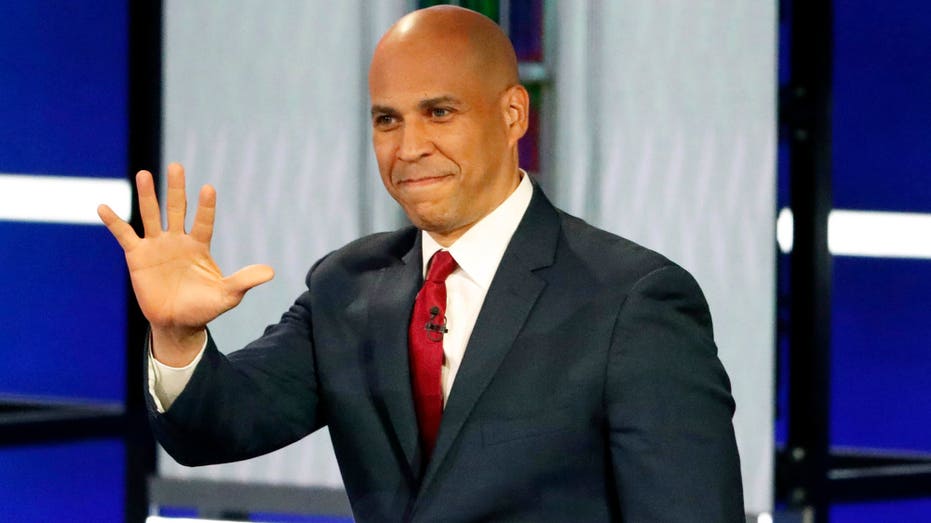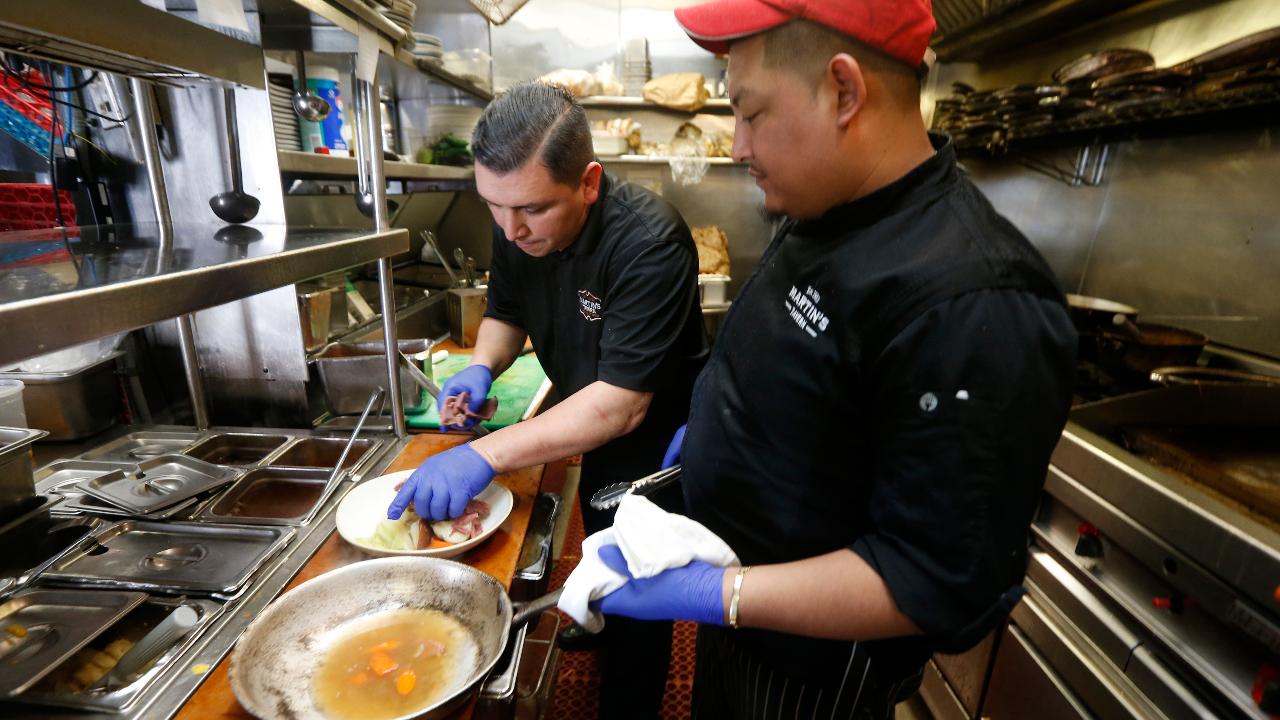Is $1,000 for coronavirus emergency aid enough?
History shows stimulus helps, but some lawmakers want bigger checksproposed relief bill
The Trump administration, acknowledging the impact the coronavirus outbreak has had on the economic lives of millions of American workers displaced by shutdowns and cutbacks, offered some hope Tuesday. "We're looking at sending checks to Americans immediately," Treasury Secretary Steven Mnuchin said at the White House. "Americans need cash now ... and I mean now in the next two weeks."
Both Mnuchin and President Trump declined to offer just how much Americans might be seeing in the near term, although Sen. Mitt Romney, R-Utah, suggested Monday a figure of $1,000 and that has been well received inside the nation's capital.

Sen. Mitt Romney, R-Utah, arrives before President Donald Trump delivers his State of the Union address to a joint session of Congress on Capitol Hill in Washington, Tuesday, Feb. 4, 2020. (AP Photo/Patrick Semansky)
While $1,000 is just about the equivalent of one week of pay for the typical American, according to the latest Labor Department data, which shows median weekly earnings of $936 for full-time workers, it is likely not enough for millions of workers who could be out of work for months.
TRUMP MAY SEND AMERICANS CORONAVIRUS CASH RELIEF: HOW BIG COULD CHECKS BE?
According to financial software company Intuit, the standard amount recommended in a fully built-out emergency savings account is three to six months of expenses. So the $1,000 that is being bandied about by the White House and Capitol Hill wouldn't make or break a family with that saved up, but it would help with things like the rent and food. However, the reality is 78 percent of Americans live paycheck to paycheck, according to Forbes, which wouldn't even allow them to have a starting-point financial savings account of $1,000.
When $1,000 isn't enough
Obviously, for families of any size, the $1,000 is a drop of rain in the ocean -- and will go fast.
Self-employed people will find $1,000 could just be a saving grace for a short period because their business income can be sporadic and inconsistent. During this crisis, businesses are shutting down, and paying for contract workers on a per-project will likely stop until those businesses resume full operation.
TRUMP AUTHORIZES DEFERRAL OF $300B IN TAX PAYMENTS, MNUCHIN SAYS
New York City, along with many other major cities across the country, decided over the weekend to shut down entertainment venues and malls and place restrictions on restaurants. Many businesses have had to furlough a great number of their workers. Postings for restaurant jobs were down 26 percent last week compared to the same week a year ago, according to data from ZipRecruiter. Job postings in catering were down 39 percent.
NYC TO CLOSE NIGHTCLUBS, THEATERS, LIMIT RESTAURANTS TO TAKE-OUT AND DELIVERY
Stretching your $1,000
If you have to cling to $1,000 and suffer a significant emergency -- like many Americans will during this time -- there are a few strategies you can test. For those with federal student loans, you can call and ask for your loans to be deferred. There are also options to move to an income-based repayment plan, which could reduce your payment to $0.
Utility companies sometimes provide emergency assistance if you ask. Landlords can be understanding if you explain your situation during this time of crisis. Make sure to call and ask before you miss a payment.
Accessibility to your $1,000
The entire point of putting $1,000 directly into the hands of American citizens is for it to be easily accessible. You should be able to get to it in need of an emergency.
GET FOX BUSINESS ON THE GO BY CLICKING HERE
Many people choose to place money payouts into a savings account so that interest can build upon it, and that could be fine in this case -- a standard savings account, not Roth IRA or another type of savings account that could be difficult to access. It would be wise to ensure that you can access it at any time.
How has it worked in the past?
In 2008, the Obama administration issued checks to stimulate the economy that was in the grips of the great recession. Single individuals received $300–$600 and couples received $600–$1,200. According to a University of Pennsylvania economic study, two-thirds of the funds were injected into the economy within six months of people receiving the funds. The study found that spending was "statistically and economically significant."

Sen. Cory Booker, D-N.J., is one of three senators proposing a $2,000 stimulus (AP Photo/John Bazemore)
Is more than $1,000 possible?
Sens. Michael Bennet, D-Colo., Cory Booker, D-N.J., and Sherrod Brown, D-Ohio, drafted a letter to Senate majority leader Mitch McConnell, R-Ky., and minority leader Chuck Schumer, D-NY, calling for immediate $2,000 payments to all adults and children in the US below a certain income threshold. Depending on how long the outbreak persists two additional payments of $1,500 and $1,000 could be sent to Americans in the months ahead.




















